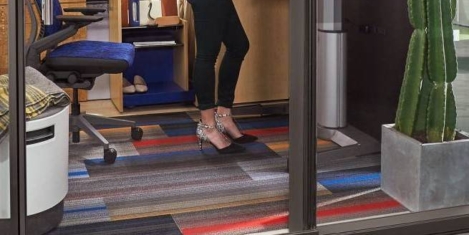July 19, 2017
Link between offices and wellbeing is too important for landlords and occupiers to ignore
 Developers and landlords who invest to create offices that embody the occupier-driven focus on wellbeing will reap their rewards commercially while those that don’t face diminishing returns, according to a new report from Cushman & Wakefield. The Well Workplace report claims to map out the major trends, opportunities and challenges of the future facing owners and occupiers of commercial office space due to the growing emphasis on employee health and vitality as part of the work environment. Improved lighting, layout and use of plants are all known to benefit wellbeing and can increase employee performance. Gains through boosting performance far outweigh potential cost savings through real estate efficiencies – making the imperative for occupiers clear, according to the report’s authors.
Developers and landlords who invest to create offices that embody the occupier-driven focus on wellbeing will reap their rewards commercially while those that don’t face diminishing returns, according to a new report from Cushman & Wakefield. The Well Workplace report claims to map out the major trends, opportunities and challenges of the future facing owners and occupiers of commercial office space due to the growing emphasis on employee health and vitality as part of the work environment. Improved lighting, layout and use of plants are all known to benefit wellbeing and can increase employee performance. Gains through boosting performance far outweigh potential cost savings through real estate efficiencies – making the imperative for occupiers clear, according to the report’s authors.









 The quality of the cycling facilities being offered by many workplaces are currently falling short and risk undermining a Government drive to increase the number of people cycling to work; as according to new research published by the British Council for Offices, 16 percent of office workers claim that inadequate facilities are discouraging them from considering commuting by bike. In April, the Department for Transport stated an aim to double the number of cycling stages, defined as a change in the form of transport as part of a longer “trip” (e.g. cycling to the train station before catching a train to work), from 0.8 billion stages in 2013 to 1.6 billion in 2025. However, new research, commissioned by the British Council for Offices and carried out by Remit Consulting, finds that whilst 83 percent of workplaces in the UK offer some form of bike storage, less than half (47 percent) of this is covered and secure. Improved parking facilities could help increase numbers of those cycling to work, with 16 percent of office workers surveyed saying that better bike storage would encourage them to do so.
The quality of the cycling facilities being offered by many workplaces are currently falling short and risk undermining a Government drive to increase the number of people cycling to work; as according to new research published by the British Council for Offices, 16 percent of office workers claim that inadequate facilities are discouraging them from considering commuting by bike. In April, the Department for Transport stated an aim to double the number of cycling stages, defined as a change in the form of transport as part of a longer “trip” (e.g. cycling to the train station before catching a train to work), from 0.8 billion stages in 2013 to 1.6 billion in 2025. However, new research, commissioned by the British Council for Offices and carried out by Remit Consulting, finds that whilst 83 percent of workplaces in the UK offer some form of bike storage, less than half (47 percent) of this is covered and secure. Improved parking facilities could help increase numbers of those cycling to work, with 16 percent of office workers surveyed saying that better bike storage would encourage them to do so.




 Perhaps it’s something to do with the housing issues many people from the younger generations now have to deal with; i.e. either live with parents or endure an overpriced house share, but those under 35 are reported to actually prefer working from the office to remote or home working. This differs from baby boomers, who would rather work from home. According to the survey by Maintel there are differing preferences between the multi-generational workforce, with those aged under 35 feeling they are most productive in the office (48 percent), while only 19 percent of those above 55 agree. Another reason why younger workers cling to the office is due to the fact that they require the face-to-face support of experienced co-workers. The survey also discovered that 28 percent found getting hold of colleagues or managers a challenge when working remotely. And it may also be down to the social aspects of office life and when seeking promotions – ensuring the visibility of hard work. On the other hand, older employees have responsibilities at home, and remote working allows them to be more efficient with their time.
Perhaps it’s something to do with the housing issues many people from the younger generations now have to deal with; i.e. either live with parents or endure an overpriced house share, but those under 35 are reported to actually prefer working from the office to remote or home working. This differs from baby boomers, who would rather work from home. According to the survey by Maintel there are differing preferences between the multi-generational workforce, with those aged under 35 feeling they are most productive in the office (48 percent), while only 19 percent of those above 55 agree. Another reason why younger workers cling to the office is due to the fact that they require the face-to-face support of experienced co-workers. The survey also discovered that 28 percent found getting hold of colleagues or managers a challenge when working remotely. And it may also be down to the social aspects of office life and when seeking promotions – ensuring the visibility of hard work. On the other hand, older employees have responsibilities at home, and remote working allows them to be more efficient with their time.



















July 13, 2017
What we may be missing about IBM’s decision on flexible working 0
by Gary Chandler • Comment, Flexible working, Property, Workplace design
More →